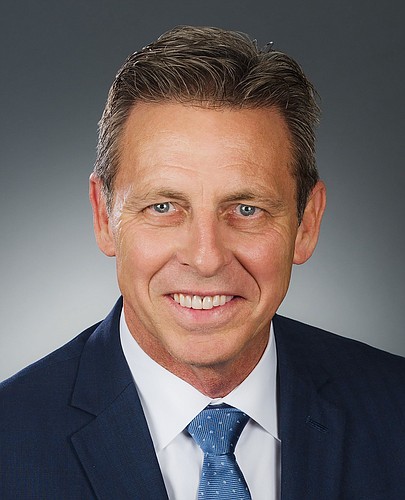
As new housing developments continue to pop up all around Northeast Florida, market conditions, rising prices for homes and building materials and higher interest rates are pointing to a potential regional slowdown.
In August, 2,656 homes sold in the region, a 6.2 percent drop from August 2017, according to the monthly sales report released by the Northeast Florida Association of Realtors.
In the same month, there were 799 permits pulled in the Jacksonville Metropolitan Statistical Area, according to the Northeast Florida Builders Association, a significant decrease from the past few months.
While many of the region’s homebuilding experts agree that there is bound to be an economic course correction nationally and locally, they don’t believe the area – or even the country – will suffer from the same effects as the Great Recession.
“I think it’s going to be more of a hiccup than a sustained slowdown because there is good job growth that is staying steady locally,” said Charles Adams, the vice president of community development for Raydient Places + Properties, which is building the expansive Wildlight community in Nassau County.
“I don’t disagree that there is going to be something that will be considered a dip, but I don’t think Florida will be in the same boat as other areas,” he said.
Adams and others said with demand at an all-time high and inventory of both existing and new homes still low, many homebuyers are willing to pay more for homes and often submit bids higher than the asking price.
But that trend may not continue, according to the monthly NEFAR report, which pulled much of its data from the National Association of Home Builders.
“Rising home prices, higher interest rates and increased building material costs have pressured housing affordability to a 10-year low,” the report says.
The report said the trend had been taking shape for some time. Nationally, median household income has risen 2.6 percent in the last 12 months, while home prices are up 6.0 percent.
“That kind of gap will eventually create fewer sales due to affordability concerns, which is happening in several markets, especially in the middle to high-middle price ranges,” it says.
Bill Garrison, the executive officer of NEFBA, agrees.
“Growth is cyclical, based on a variety of factors, and it absolutely will slow down again,” he said.
“Development is a true supply-and-demand industry.” Garrison said. “Currently, we are at a healthy place with a strong demand, and a tight supply. This keeps prices up which makes new development attractive to large investors (aka developers).”
Garrison said eventually something will happen to slow the economy and reduce demand.
“The question is not if this will happen, the question is when will this happen,” Garrison said. “Given the relatively long term of this recovery, many people think it is sooner rather than later.”